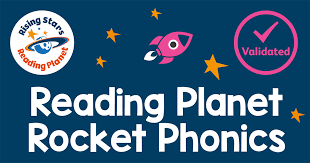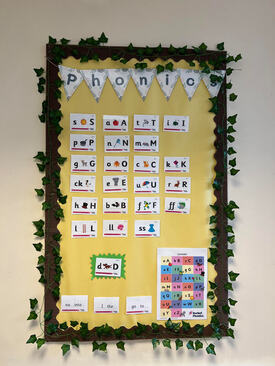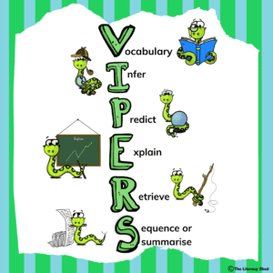ENGLISH at Marsh Gibbon CE School
Please speak to Mrs Bramwell to find out more about the English curriculum
“Let us remember: One book, one pen, one child and one teacher can change the world.” Malala Yousafzai
INTENT
At Marsh Gibbon, our vision is for excellence in all that we do. Each member of the school is committed to providing high quality learning activities and experiences so that children can achieve the best possible outcomes. We do this through an ambitious English curriculum with texts as the beating heart of a lesson. The main driver of our English curriculum are high quality texts which foster a love of reading in our children and inspire them to write. During their time at our school, our children will experience a wide range of carefully chosen, high quality, culturally diverse picture books and novels which inspire and help develop ambitious vocabulary. We believe that teaching and learning cannot be a ‘one size fits all’ approach and so our text led English Curriculum has been shaped by our vision to enable all children, regardless of background ability or additional needs to flourish and become the very best version of themselves they can possibly be. We teach the National Curriculum supported by a clear skills and knowledge progression. This ensures that skills and knowledge are built on year by year and sequenced appropriately to maximise learning for all children. Careful links are made across the curriculum to ensure that children’s English learning is relevant and, wherever possible, link our reading, writing and the topic that we are covering in History and Geography. At Marsh Gibbon, children will be exposed to a bespoke, language rich, creative and progressive English curriculum which will not only enable them to become primary literate, but will also develop a love of reading, a deeper understanding and appreciation of the world around them and the ability to question others and develop their own informed points of view.
IMPLEMENTATION
Reading
In EYFS and Year 1, we teach daily phonics sessions using Rocket Phonics where children learn the relationship between the sounds of the spoken language and the letters or groups of the written language. As they master this and their fluency develops, we support children in understanding what they have read, encouraging them to look for ‘clues’ to develop their inference skills. As the children move up through key stage two, teaching focuses on deepening comprehension skills, developing an understanding of authorial intent and identifying how language, grammar and punctuation all contribute to meaning.
As well as regular, focused, one-to-one reading throughout the school, at Marsh Gibbon, we teach reading through: high quality whole-class guided sessions, the reading phase of our writing process (reading as a reader) and also sessions in our wonderful library. Every class enjoys a class novel and we all have a dedicated themed reading corner and well-stocked class library to encourage reading for pleasure.
Writing
Our writing curriculum is based on high-quality texts which have been carefully chosen to engage and inspire our children. These rich texts contain tier 2 and 3 vocabulary. These are the keys to scholarship. If we do not use them in classroom talk, our children will not have access to them. Ensuring our classrooms are language-rich environments builds our children’s vocabulary and help them to ‘feel’ like writers.
We have a whole-school approach to the teaching of writing which involves ‘hooking’ the children with a text (or sometimes a film, or piece of music), delving deeper into the genre and explore language features, and finally, the writing stage where children plan, write and edit, then produce their final, well-crafted piece of writing. At all stages of these ‘learning journeys’ children are encouraged to write in response to the text – our children really see themselves as writers!
We encourage and teach children to edit and improve their work, themselves and with others, and regularly share work with other classes for their feedback. Our writing is everywhere – in our books, on the walls… we write to everyone and anyone to give our writing a real purpose. Spelling is taught using the ‘No-nonsense’ spelling programme through a mixture of interactive and classroom resources. We teach our children that their writing books should be something to be proud of – showing steady progress, imagination, hard-work and creativity.
IMPACT
INTENT
At Marsh Gibbon, our vision is for excellence in all that we do. Each member of the school is committed to providing high quality learning activities and experiences so that children can achieve the best possible outcomes. We do this through an ambitious English curriculum with texts as the beating heart of a lesson. The main driver of our English curriculum are high quality texts which foster a love of reading in our children and inspire them to write. During their time at our school, our children will experience a wide range of carefully chosen, high quality, culturally diverse picture books and novels which inspire and help develop ambitious vocabulary. We believe that teaching and learning cannot be a ‘one size fits all’ approach and so our text led English Curriculum has been shaped by our vision to enable all children, regardless of background ability or additional needs to flourish and become the very best version of themselves they can possibly be. We teach the National Curriculum supported by a clear skills and knowledge progression. This ensures that skills and knowledge are built on year by year and sequenced appropriately to maximise learning for all children. Careful links are made across the curriculum to ensure that children’s English learning is relevant and, wherever possible, link our reading, writing and the topic that we are covering in History and Geography. At Marsh Gibbon, children will be exposed to a bespoke, language rich, creative and progressive English curriculum which will not only enable them to become primary literate, but will also develop a love of reading, a deeper understanding and appreciation of the world around them and the ability to question others and develop their own informed points of view.
IMPLEMENTATION
Reading
In EYFS and Year 1, we teach daily phonics sessions using Rocket Phonics where children learn the relationship between the sounds of the spoken language and the letters or groups of the written language. As they master this and their fluency develops, we support children in understanding what they have read, encouraging them to look for ‘clues’ to develop their inference skills. As the children move up through key stage two, teaching focuses on deepening comprehension skills, developing an understanding of authorial intent and identifying how language, grammar and punctuation all contribute to meaning.
As well as regular, focused, one-to-one reading throughout the school, at Marsh Gibbon, we teach reading through: high quality whole-class guided sessions, the reading phase of our writing process (reading as a reader) and also sessions in our wonderful library. Every class enjoys a class novel and we all have a dedicated themed reading corner and well-stocked class library to encourage reading for pleasure.
Writing
Our writing curriculum is based on high-quality texts which have been carefully chosen to engage and inspire our children. These rich texts contain tier 2 and 3 vocabulary. These are the keys to scholarship. If we do not use them in classroom talk, our children will not have access to them. Ensuring our classrooms are language-rich environments builds our children’s vocabulary and help them to ‘feel’ like writers.
We have a whole-school approach to the teaching of writing which involves ‘hooking’ the children with a text (or sometimes a film, or piece of music), delving deeper into the genre and explore language features, and finally, the writing stage where children plan, write and edit, then produce their final, well-crafted piece of writing. At all stages of these ‘learning journeys’ children are encouraged to write in response to the text – our children really see themselves as writers!
We encourage and teach children to edit and improve their work, themselves and with others, and regularly share work with other classes for their feedback. Our writing is everywhere – in our books, on the walls… we write to everyone and anyone to give our writing a real purpose. Spelling is taught using the ‘No-nonsense’ spelling programme through a mixture of interactive and classroom resources. We teach our children that their writing books should be something to be proud of – showing steady progress, imagination, hard-work and creativity.
IMPACT
- Children leave us with a broader cultural capital, a deeper understanding and appreciation of the world around them and the ability to question others and develop their own informed points of view.
- Children develop a love of reading and writing and appreciate how both of these skills can deepen their experiences of the world.
- The % of children working at ARE within each year group will be at least in line with national averages.
- The % of children working at Greater Depth within each year group will be at least in line with national averages.
- Pupil premium children will make good progress from their starting points and the gap between them and others is narrowed.
OUR CURRICULUM PLANS
To view the objectives in the new curriculum, please click on the links below:
Year 1 Objectives
Year 2 Objectives
Year 3 & Year 4 Objectives
Year 5 & Year 6 Objectives
Year 1 Objectives
Year 2 Objectives
Year 3 & Year 4 Objectives
Year 5 & Year 6 Objectives
Reading & Phonics
Reading
As a school, we believe that creating a culture of reading is a vital tool in ensuring our children are given the best possible life chances. We ensure that all our pupils are provided with a rich and varied learning experience that aims to develop them as lifelong readers. Cultivating readers with a passion for a wide range of materials will ensure that children’s love of reading extends far beyond the classroom and allows them to build on their skills independently through a real curiosity for literature and thirst for knowledge.
As a school, we believe that creating a culture of reading is a vital tool in ensuring our children are given the best possible life chances. We ensure that all our pupils are provided with a rich and varied learning experience that aims to develop them as lifelong readers. Cultivating readers with a passion for a wide range of materials will ensure that children’s love of reading extends far beyond the classroom and allows them to build on their skills independently through a real curiosity for literature and thirst for knowledge.
|
Phonics
In order to develop the secure decoding skills and phonic knowledge required for reading, our EYFS and Key Stage 1 children receive a daily phonics lesson. We use the Rocket Planet Synthetic Phonics programme to deliver our phonics curriculum. It sets out a detailed and systematic programme for teaching phonics for infant aged pupils, with the aim of children becoming fluent decoders by the age of seven. In Year 1 the children complete the statutory Year 1 Phonics Screening Check. This is a short 1:1 assessment which confirms whether individual children have acquired the necessary phonic decoding skills to an appropriate standard. It also identifies those children who need extra support to improve their reading decoding skills. These children will then be able to retake the check in Year 2. Mrs. Blane shared a Power Point Presentation with parents which went into detail about our Phonics Scheme, how children learn Phonics and how parents can support at home. Here is the PowerPoint if you missed the meeting. |
|
Reading Skills
At Marsh Gibbon, we aim to develop children's word reading and reading comprehension skills in tandem through the explicit teaching of reading skills. Children need to be aware of the reading skills they are using in order to give them a greater understanding of what makes a well-rounded reader. At Marsh Gibbon, these skills are known as VIPERS. Vocabulary Inference Predict Explain Retrieve Sequence or summarise |
Key Stage 1 National Assessments in Reading [SATS]
At the end of Key Stage 1, in Year 2, teachers assess children's reading against national criteria. By the end of Year 2, most children will be reading with a high degree of fluency. The reading assessment focuses on children's reading comprehension skills, and understanding of what they read. Reading in Key Stage 2 [Years 3 to 6] By Key Stage 2, most children have acquired the fluency to access a wider variety of reading material. Throughout Key Stage 2 children will have the opportunity to take home a "reading skills" book from our reading scheme, and a colour banded "reading choice" book from the library. The library is well stocked with a varied range of high quality fiction from renowned children's authors as well as wide variety of non fiction texts. The literature has been banded to reflect the complexity of the text and the maturity required from the reader. A child who is a good decoder, with a large sight vocabulary is not necessarily a good well rounded reader. It is vital that parents engage in discussion with their children to ensure they have a true understanding of the text. Many children in Key Stage 2 will be able to read independently. However, they are still encouraged to read regularly to staff in school and adults at home. This reading continues to be recorded in the child's reading diary. Children are also invited to record in their own reading diaries. In Key Stage 2, group guided reading sessions are replaced by whole class guided reading lessons. This enables teachers to explicitly teach higher order reading comprehension skills and pupils to closely analyse texts for meaning, using their VIPERS skills. Lessons focus on examining chapters and passages from class texts as well as shorter excerpts from a range of genres. Children in Key Stage 2, still requiring support with decoding and reading fluency, will receive additional 1:1 and small group work to develop these vital skills. Throughout the school, reading is embedded across the curriculum and children are given the opportunity to read widely across different subjects. We make opportunities to read to the children so that they can appreciate and enjoy literature together. |
| ||||||






